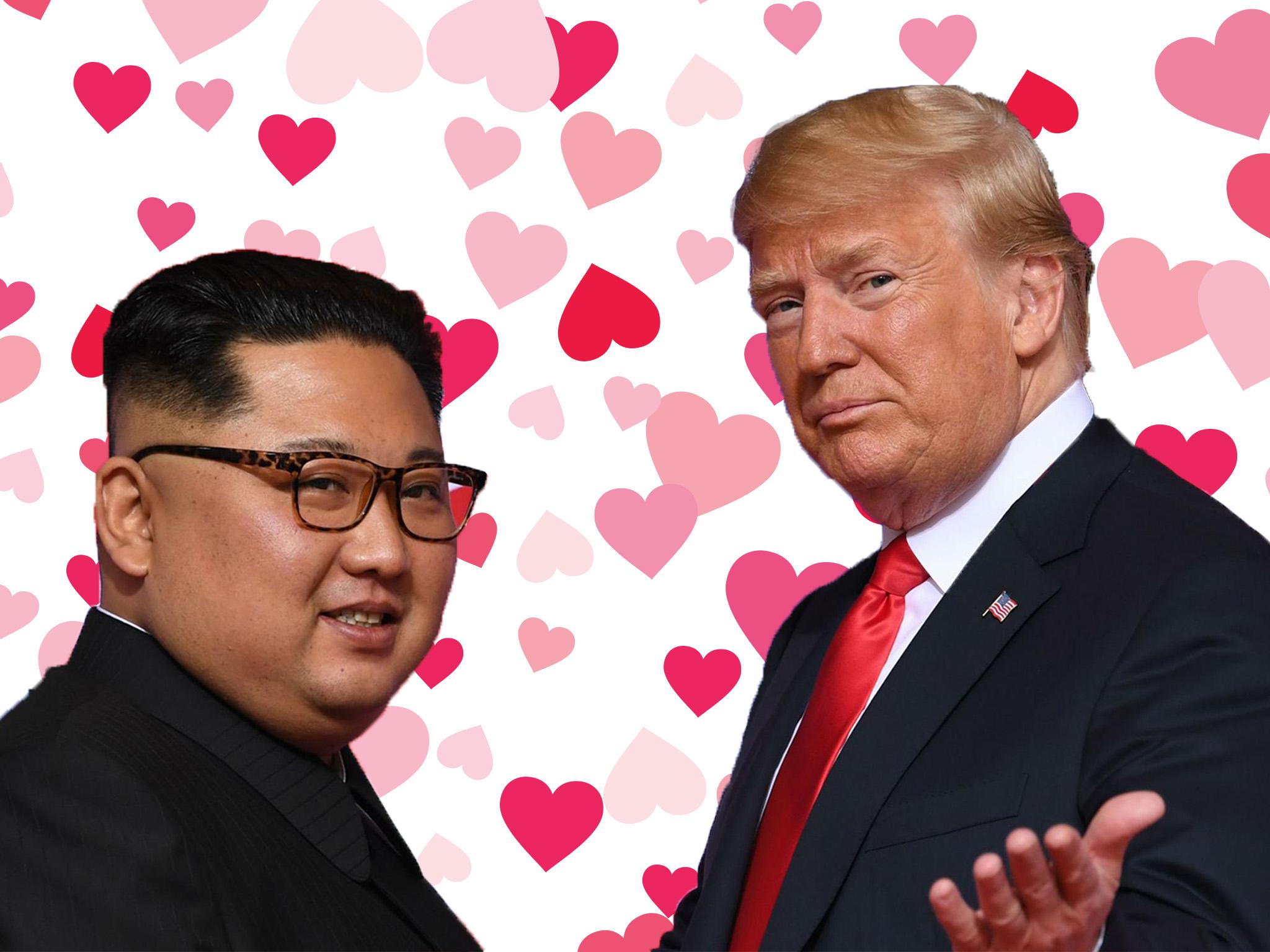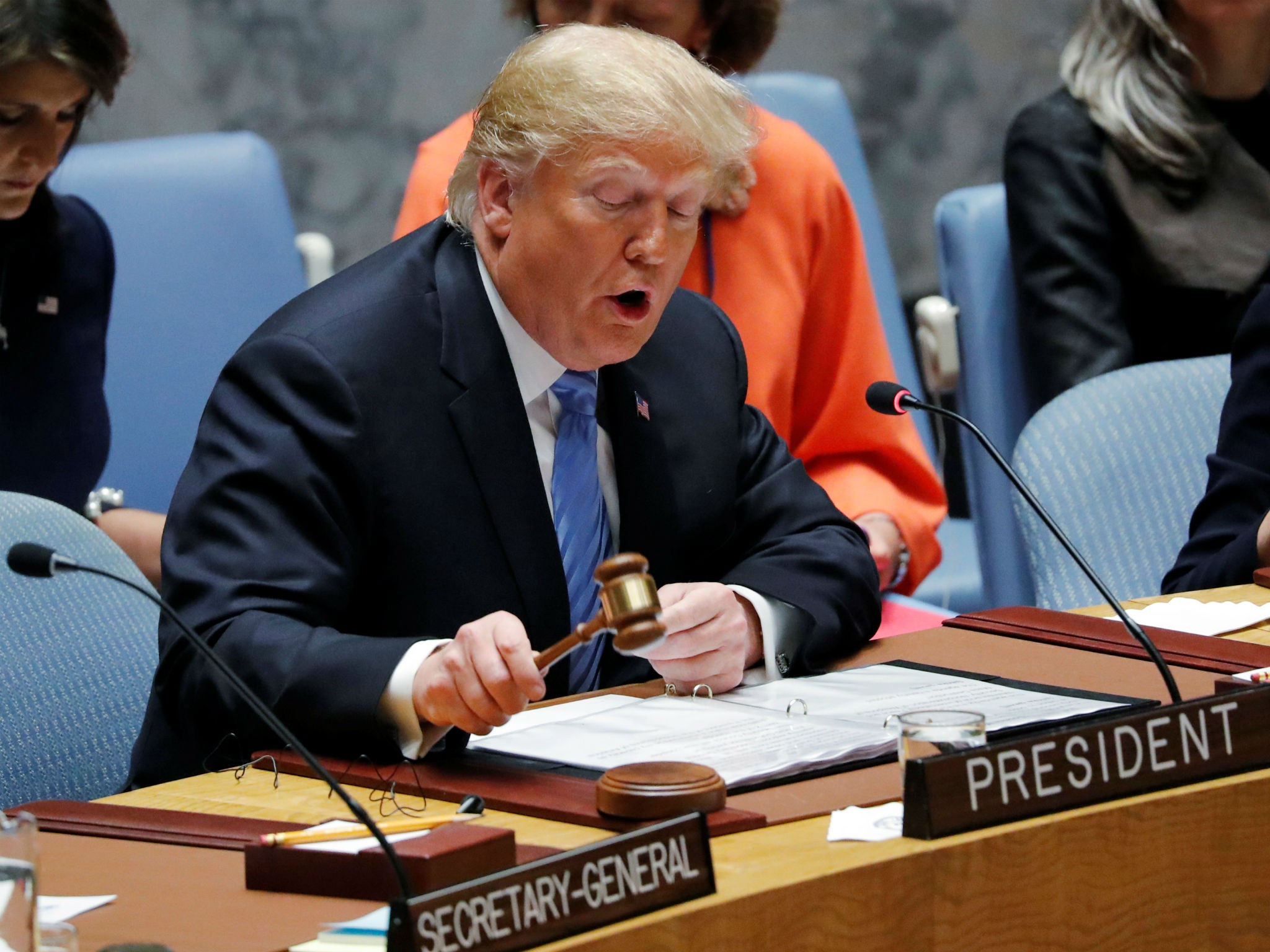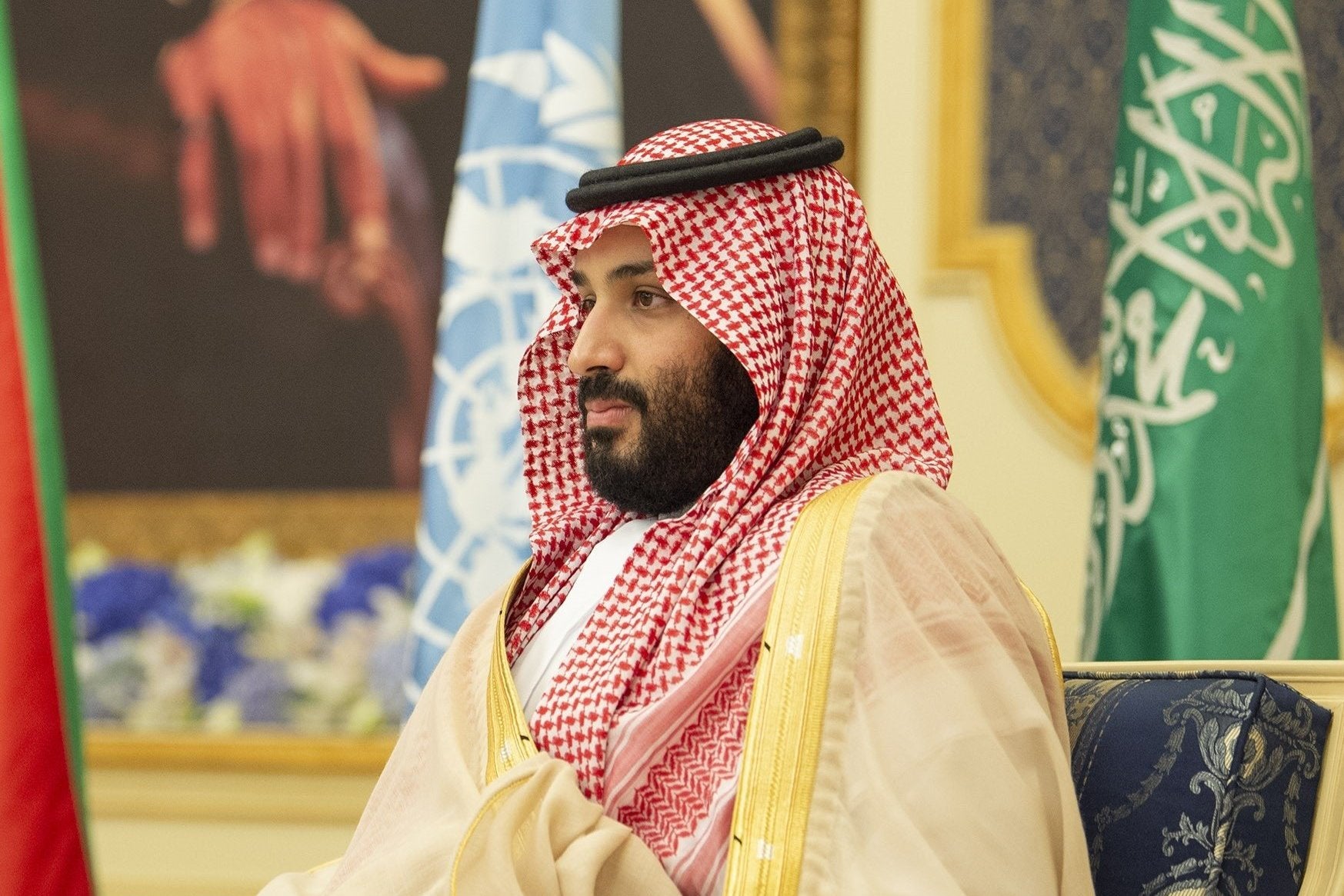Has Donald Trump killed the art of diplomacy?
He has expressed love for enemies and poured scorn on allies. But as Kim Sengupta explains, there is little to suggest Donald Trump will change his baffling approach to foreign affairs, which means the rest of the world must adapt


The US president is in love with the leader of North Korea. No more the “little rocket man” who will face “fire and fury like never seen before”: now Donald cannot wait to see Kim again. “We fell in love. He wrote me beautiful letters. And they were great letters. And we fell in love”, the US president declared last weekend. “We are doing just great with North Korea.”
In the same speech in West Virginia, Trump assured the audience “I just left the United Nations, believe me they respect us again”, before warning that a vote for the Democrats in the mid-terms would turn America into a “version of Venezuela”.
The statements were an illustration of the strange, dystopian world of the Donald and diplomacy, in which the policy of the planet’s most powerful country can be changed by flattering a man with little knowledge of history or current affairs, who can insist that public mockery at a world forum is a mark of respect.
What happened at the UN last week was extraordinary and has been widely talked about in diplomatic circles since. No president of the United States has ever been treated with such derision at a gathering of international leaders like that before.
There have been highly dramatic moments at the UN over the years: Nikita Khruschev banging his shoe on the lectern in 1960; Fidel Castro’s four-and-a-half-hour denunciation of America in the same year; Hugo Chavez making the sign of the cross in 2006, as he called George W Bush the devil; Yasser Arafat saying he came with an olive branch, as he became the first non-head of state to address the general assembly in 1974; and Muammar Gaddafi tearing up a copy of the UN charter nine years ago.
But the kind of open, spontaneous disdain and ridicule witnessed last week was something new.
The laughter, we may recall, followed Trump’s opening lines: “In less than two years, my administration has accomplished more than almost any other administration in the history of our country”. The reaction was not just to the conceit that he is a more effective and accomplished leader of America than Washington, Lincoln, Roosevelt, Kennedy and Reagan (and the rest); it was an expression of the view that in less than two years the current president has reduced the prestige of his office to such an extent that it can be the subject of mockery.
As the scenes went around the world on news channels and social media, the Trump team tried to put a desperate gloss on the embarrassment. Nikki Haley, the American ambassador to the UN, claimed that the delegates had laughed because “they loved how honest he is”.
That and other “explanations” from the White House caused further amusement: but it could nonetheless be argued that what happened was inappropriate, disrespectful, and against diplomatic etiquette. Trump had complained during his presidential campaign that “the world was laughing at America” – he is famously thin-skinned, hates to be laughed at, and what happened at the UN would have made him furious. Was it really wise to goad a US President in that fashion, in his own country?

Yet what took place was a reflection of the changes brought about by the Trump presidency. The commonly accepted definitions of diplomacy are: “the art of dealing with people in a sensitive and tactful way”; “The practice of conducting negotiations between nations”; “The skill in handling international affairs without arousing hostility”. Words considered synonyms of diplomacy are “tactfulness”, “understanding” and “charm”. The antonyms are “clumsiness”, “insensitivity” and “tactlessness”. Most people can make up their mind about which side Trump falls under these criteria.
As well as ignoring conventional diplomatic practices, Trump has introduced an atmosphere of aggressiveness and confrontation into international relations through his bombastic tweets and unscripted harangues in speeches and press conferences.
This has, eventually, led to a reaction among allies as well as adversaries and can be seen in the way the US president’s encounters with Western allies have changed since he came into office.
In their first exposures to Trump, European leaders, although dismayed by his denigration of the EU and Nato, were respectful and cordial in their public behaviour towards him. The feeling, we were told, was that the president would change as he settled into the responsibilities of office and took counsel from the wiser heads he was appointing in his administration.
But now, at G7 and Nato meetings, senior Europeans are, more often than not, to be seen talking among themselves, while Trump is left posing for the cameras or with the second-tier, the wannabe mini-Trumps like Hungary’s Viktor Orban. This is a noticeable contrast to the way previous US presidents were the centres of attention at such gatherings, with other top politicians vying to be seen with them.
There was similar caution at first about addressing Trump’s public falsehoods, with foreign leaders skirting questions at press conferences. But as they have continued, relentlessly, there are now attempts at rapid rebuttals. There were a few examples of this at the last Nato summit in July, when member states lined up to dismiss the president’s claims that he has personally forced them to spend more on defence than they had previously agreed. The German government was robust in refuting Trump’s assertion (an untrue one) that their country was almost totally energy dependant on Russia.
Trump repeated the same claim about energy at the UN last week. The camera panned to the German delegation as he was doing so. They did not look annoyed, or concerned; instead they sat there grinning, with the look of people who knew what was being said could not be stopped, but would not be taken seriously.
This was Trump’s second speech to the UN general assembly and it was not that different from his first, focusing on America first and decrying his version of globalisation. The enemies list, however, had changed. Top billing went last year to Kim Jong-un who was said to be on a “suicide mission”, with the US president warning that he would “totally destroy” North Korea. This time, Kim received praise for his “courage” and the first steps he had taken “towards peace and amity”.
The diatribe this year was against Iran. Trump has already torn up the agreement on the country’s nuclear arsenal with the international powers, an agreement all the other signatories – Britain, France, Germany Russia and China— maintain is working. The aim now was to cripple the country’s economy through sanctions, with the subtext of engineering regime change.
It all became quite chaotic. Trump had decided that he was going to replace vice president Mike Pence to chair a session of the Security Council. Britain had asked for chemical and biological weapons to be the subject for discussion, so that Russia’s role in the Salisbury attack could be addressed and condemned. Trump insisted that the focus would instead be on Iran.
UN officials pointed out this meant the Iranian president would be called to speak. American diplomats in turn realised this could be rather tricky, with Hassan Rouhani given an opportunity to challenge Trump about the nuclear agreement in front of an overwhelmingly sympathetic audience. The White House therefore decided that the topic should revert back to weapons of mass destruction.
Trump thinks he is going to get the Nobel Prize for North Korea, he won’t accept anyone seen to be undermining what he sees as his achievement there
Trump came in almost half an hour late to chair the meeting because he was, said his aides, in a meeting with the Israeli prime minister, Benjamin Netanyahu. He denounced Iran, but the 14 members of the Security Council rejected his attack on the nuclear deal, urging that it should be preserved. President Rouhani duly told journalists with relish: “nobody backed him, putting America into a unique historical and political position.”
Trump then went on to claim, without any evidence, that China, the target of his trade war, was plotting to subvert the coming mid-term elections. (Let’s not forget the investigation into Russian interference in the US election that put him in the White House remains ongoing). He did not, on the WMD session, mention the Salisbury attack once – despite it being the first time that a nerve agent has been used in Europe since the Second World War.
What happened in New York illustrated the Trump approach to international relations – wild unsupported allegations, insults and contradictory messages; misjudging situations and ignoring the advice of members of his administration.
Almost all the problems above could be manageable were it not for the last one. One by one, senior cabinet members who had sought to restrain Trump and maintain a structured foreign policy – like Secretary of State Rex Tillerson and National Security Advisor General HR McMasters – have gone. Homeland Security Chief General John Kelly is expected to be the next to depart, to be followed, according to reports, in the not too distant future by the Defence Secretary General James Mattis.
The replacements who have been brought in, like Mike Pompeo at the State Department and John Bolton as national security advisor, are seen as being there to facilitate Trump’s wishes rather than challenge them. Bolton may be the more vulnerable of the two, having expressed scepticism about Kim Jong-un’s conversion to a peacemaker. An American official said: “Trump thinks he is going to get the Nobel Prize for North Korea, he won’t accept anyone seen to be undermining what he sees as his achievement there. Bolton won’t last if he says too much, anyway Trump thinks he is too ugly and doesn’t like his [walrus] moustache”.
But, while American diplomats lament the Trump effect, the US president’s actions have led to a flurry of diplomatic activity from other nations, some with considerable success. North Korea has been adroit in its dealings with the president; Kim Jong-un concluding that fulsome praise of Trump would be far more effective than trading insults.
Thus we have “the beautiful letters”, which filled Trump with moist-eyed adoration, and the Singapore summit, a face to face, bilateral meeting without preconditions, something every previous US president had rejected as it would be viewed as Pyongyang’s sabre rattling paying off.
$5bn
The value of business at the South Pars oilfield in Iran, which could be coming China’s way
Of course, Trump hailed the meeting as a huge success for his statesmanship, saying it was “almost treasonous” of the media to fail to accept that. In reality, North Korea has done nothing to dismantle its nuclear arsenal and has basically said that it does not intend to do so. Nuclear testing has stopped for the time being, but Pyongyang has made it clear that it is a temporary step. Some American citizens who were held in the country were freed and the remains of some US soldiers killed in the Korean War repatriated. In return, Kim Jong-un has achieved one of his primary aims: the halting of joint military exercises by the US and South Korea.
Kim Jong-un can therefore congratulate himself for managing to do what his father and grandfather failed to achieve: maintaining nuclear weapons capabilities, weakening the military alliance between Washington and Seoul; and gaining international acceptance by the US as an equal, not to mention the affection of an American president.
The issue of what happens to the state which replaced North Korea as America’s enemy number one, Iran, has also led to diplomatic initiatives. The other signatories to the Joint Comprehensive Plan of Action (JCPOA) with Tehran – including Britain and Russia, whose relations are at one of the lowest ebbs after the Novichok attack – are liaising in an effort to ameliorate the damage caused by America’s punitive measures.

The European Union, Iran, China and Russia have organised a plan to sidestep the unilateral sanctions imposed by the US by setting up financial measures, known as Special Purpose Vehicles (SPVs), to help the Iranian economy and persuade Iran not to leave the deal. Speaking at the UN general assembly, Federica Mogherini, the head of EU external affairs said the programme would facilitate payments related to Iran’s exports, including oil, and imports as long as the firms involved were carrying out legitimate business ventures under EU laws.
Seeing its window to the West being shut by the Trump administration, Iran is now looking east. There is a rise in diplomatic and economic activities between Tehran, Beijing and Moscow.
Indeed, China is on its way to becoming a major beneficiary of America’s Iran policy. There is a strong possibility that it will take over the $5bn (£3.8bn) contract for the South Pars gas fields, with the French multinational, Total, likely to pull out because of the threat of US fines. Meanwhile, the Moscow-led Eurasian Economic Union has signed a deal with Iran to lower tariffs on hundreds of goods and becoming part of a free-trade zone.
Just about the only countries which wanted the Iran nuclear deal sabotaged were Israel and a Saudi-led Sunni bloc. Israel has long seen Iran as an existential threat; the Saudis and other Sunni states accuse Tehran of inciting unrest and seeking to establish a Shia hegemony in the region.
There was initially a feeling among many in the reformist leadership that the other international signatories would be able to persuade Trump to persevere with the nuclear deal
But there was little international support for the campaign to end the nuclear deal and the fact that Israel and the Saudi coalition managed to get their way is a diplomatic triumph.
It is highly unlikely that this could have been achieved if Trump had not been in the White House. Inside Israel there was in fact strong opposition to scrapping the agreement, from politicians and from senior military and intelligence officers, who repeatedly pointed out that it was working. They had concluded that Tehran was living by its obligations, and that it was an effective safeguard against Iran acquiring a nuclear arsenal.
The leverage for Benjamin Netanyahu’s government to exert its will was largely inside the US, where many on the religious right are big supporters of Israel, as well as providing funding and a significant support base for Trump. Two billionaire donors for Trump, Sheldon Adelson and Bernard Marcus, had also wanted the Iran deal destroyed. In the end, these people got their way despite opinion polls showing that two-thirds of Americans supported the continuation of the deal.
Trump’s first overseas trip after entering the White House was to the Gulf States and Israel in May last year. There were no attempts to hide the fact that one of the main aims of the Arab leg of the journey was to sell arms. The US president himself constantly brought up the topic of sales while meeting leaders in Riyadh. He promised Qatar’s Emir, Sheikh Tamim bin Hamad Al-Thani, that the two men would discuss “lots of beautiful military equipment because nobody makes it like the United States”. He noted, in a meeting with Kuwait’s Emir, Sabah al-Ahmad al-Sabah, that his country were good customers for US arms.
Meanwhile, there was denunciation of the Iranians for allegedly supporting terrorism. I was in Iran at the time, reporting on the presidential election in which the reformist candidate Rouhani had won a landslide victory defending the nuclear agreement against hardline opponents. I recall the foreign minister, Javad Zarif, observing that the US president should spend his time usefully in Riyadh by discussing how to avoid his Saudi hosts carrying out another 9/11 style atrocity in America, instead of making baseless claims of terrorism against other countries. Zarif pointed out that Trump himself had previously suggested that the Saudis were responsible for the 2001 New York attack.
Although the Iranians were apprehensive about what would happen to the JCPOA there was at that stage a feeling among many in the reformist leadership that the other international signatories, the EU, the UN and American diplomats would be able to persuade Trump to persevere with the deal. Despite reassurances from Europe, it soon became clear that the Americans would renege on the agreement.
The Saudi-led arms purchases certainly helped in the campaign to get the US to abandon the Iran deal – again, this was unlikely to have been possible with a different US president. Indeed Trump was crowing about the sales when the Crown Prince Mohammed Bin Salman visited America earlier this year.
Sitting beside the Prince at the Oval Office, Trump held up charts to show the sheer extent of the purchase. “Saudi Arabia is a very wealthy nation, and they’re going to give the United States some of that wealth, hopefully, in the form of jobs, in the form of the purchase of the finest military equipment anywhere in the world,” Trump told assembled reporters.
The Crown Prince, MBS as he is known, looked decidedly uncomfortable as Trump boasted of the results of his salesmanship: “$880m ... $645m ... $6bn ... that’s for frigates.” Prince Mohammed is a moderniser who is carrying out reform at home and this was not the image the Saudis are trying to project to the world. The whole idea of the extensive Royal tour to the West was to show how the Kingdom is changing. In an earlier part of the journey billboards had been put up in London (at a cost of £1.1m) saying: “He [MBS] is opening Saudi Arabia to the world.”

Trump’s focus on trade is driving a wedge between allies and bringing adversaries together. The belligerence of his policy has affected both China and India. The GDP of the world’s two most populous nations will exceed those of the G7 nations in the next two decades and both countries have benefited greatly from globalisation with technological and social progress intrinsically linked to the strides being made economically.
Beijing is the primary focus of American action, but Delhi is also feeling the impact. Senior members of the administration, including Defence Secretary Mattis, have failed to persuade Trump to grant India exemptions from tariffs.
As a consequence, China and India – engaged in decades of acrimony – have seen a hurried bolstering of relations. The irony is that India is being pushed towards China by Washington after years of effort by successive American administrations to turn Delhi into a strategic ally against Beijing through a raft of economic, political and military initiatives.
American diplomats complain that the President does not see the bigger picture. But there is no reason for that to change while he is in office and continues to take control of policy, getting rid of those of his advisors who disagree with him.
Trump’s supporters hold that there has actually been success through taking an unconventional approach. Would Kim Jong-un have become so emollient had the President not taken his tough line at the beginning, they ask? Similarly they argue that the new trade deal with Mexico and Canada, which Trump declared was “truly historic news for our nation and the world”, would not have taken place had there not been initial threats to impose high tariffs on both the countries.
Trump’s expressions of tendresse for Kim Jon-un and declaration of victory at the UN came at a rally in Wheeling, West Virginia, a state he won by 40 per cent in the election but where the Republican candidate Patrick Morrissey is trailing the sitting Democratic Senator, Joe Manchin in the race for the mid-terms next month.
There is much interest abroad at present as to what will happen at the elections. Democrat control of the House of Representatives and the Senate may mean Trump being hamstrung on his agenda priorities; and, depending on the outcome of Special Counsel Robert Mueller’s report, the initiation of impeachment proceedings against him.
What unfolds will have a profound influence not just on the American domestic landscape but for an international diplomatic order on which Donald Trump has made such a personal and extraordinary imprint.
Join our commenting forum
Join thought-provoking conversations, follow other Independent readers and see their replies
Comments